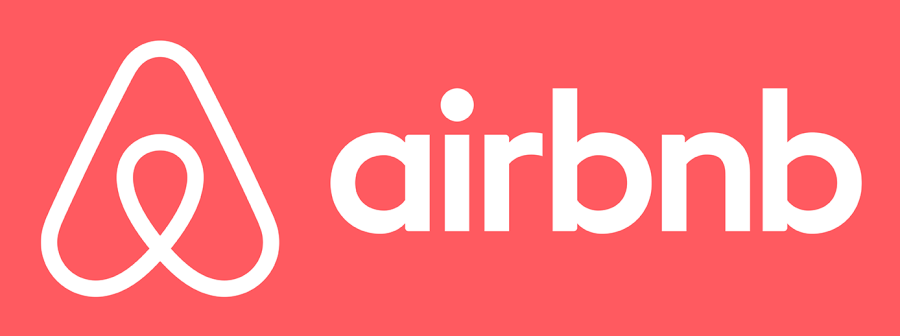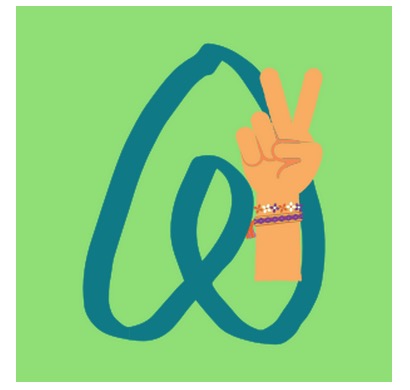Also see:
- I rented an Apartment to Airbnb in NYC
- Airbnb First Month By the Numbers
- Airbnb by the Numbers: Q1 Update
- In Praise of Humble Beginnings
I’ve been meaning to talk about this for a while because it seems like there’s a lot of opinions about Airbnb these days.
Specifically, I’d like to talk about what it’s like being an Airbnb host, how it’s been staying at Airbnbs as a guest, and all the others that think it’s a great thing… and a terrible thing.
The users
People who book lodging on Airbnb tend to be millennials who aren’t looking for a traditional hotel.
The downsides:
- You won’t receive points for your stay
- There may or may not be a “welcome amenity”
- There are NO “upgrades” – WYSIWYG
- There may or may not be breakfast included
- You’re at the mercy of an individual
The upsides:
- If you need multiple beds or rooms, it’s much cheaper than a traditional hotel suite
- You can stay in real neighborhoods as opposed to tourist areas, and feel like a local
- When it’s good, it’s great. People I’ve met are open and kind, and I didn’t miss the hotel experience
- It’s usually more private. No elevators and desk areas to pass through
- More negotiation is possible, especially in the off-season or for longer stays
- Lots of obscure locations where there might not be hotels – get a unique experience
Now, if your host doesn’t show up to let you in or leaves you hanging… that’s a pretty bad scenario. Fortunately, Airbnb has lots of verification systems, and heavily encourage reviews.
Bleep happens of course, but when you’re coming off a long flight, you don’t want an excuse, you want to get in and settled.
Most hosts I know have a Plan B. And a Plan C. And a… yeah.
When I’ve stayed at Airbnbs, I’ve never had an issue getting in.
Be communicative, give a heads up if you’re delayed, and stay in touch. It’s all about the little things, but they go a long way.
Considering a suite in a hotel can be over $1,000, you can save yourself a bundle of money by booking an Airbnb. Especially in expensive cities like New York or San Francisco.
The hosts
There are a lot of motivations for someone wanting to become an Airbnb host. Including the most obvious: money.
When I stayed at an Airbnb in Honolulu, it didn’t take me long to run some quick calculations in my mind and mumble “Holy hell” to no one in particular.
Same when I visited a friend at an Airbnb in Munich for Oktoberfest. The host was a friend of his and he knew the “financials” of the apartment.
I was finally getting into a situation where I had some liquidity. And I thought, holy crap, I could do this in New York!
As with all brilliant ideas, a zillion people were already doing it. There was a subculture, even. A big one.
My motivation is to pay off my student loans, nagging debts, and become financially independent.
My intention is create places where anyone would feel welcome.
I figure if others are doing it, I might as well throw my entry into the pot. And I can try to make something really nice out of it.
Those who are “they”
Finally, there’s everyone else.
- Politicians who support and do not support
- Landlords who don’t like profiteers and don’t mind one way or the other
- People who use and abuse the system
- People who hate it and want it gone
- People who think it’s totally legal
- People who think it’s completely illegal
- Supporters who think it’s the best thing ever
- All kinds of users
- All kinds of hosts
So there’s lots of room for…
Arguments
Airbnb is ruining the housing supply
New York is crowed. The vacancy rate is below 1%. You’re seriously taking an apartment off the market?
Yep.
New York is crowded. But there are plenty of market-rate apartments out there.
A simple search on Streeteasy shows me over 200 apartments in the price range of what I have – within an 8 to 10 block radius. And that’s just what’s listed.
The argument is… if everyone did it, then there wouldn’t be any more apartments left for people to live in. The housing supply would diminish.
That’s very true. At that point, it will probably become way more regulated.
New York is a city in constant flux. People are in and out all the time. I think we are far off from Airbnb threatening the housing supply.
But what about rent-stabilized apartments?
A-ha. This is a good one.
Because it really does take away a valuable resource from the housing supply.
But landlords of rent-stabilized (or controlled) buildings are far more aggressive about their lease terms. In the few instances where a rent-stabilized apartment has been found on Airbnb, it’s been shut down pretty quickly.
I don’t agree with this at all. I’m paying market rates for my apartments.
None of them are rent stabilized and none of them are special housing.
While this does happen from time to time, it’s usually found out and dealt with quickly.
Isn’t Airbnb illegal in New York?
It’s actually a huge gray zone. Technically, you’re supposed to have written permission from the landlord before you can list an apartment on Airbnb.
Because the laws are outdated and vaguely worded, it’s hard to enforce them one way or another.
It really depends on the landlord… that is, if you’re renting your apartment.
If you own it, you can do what you want with it (within the bylaws for condos and co-ops).
But renting is a different animal.
If you’re dealing with a luxury apartment or a co-op building, Airbnbs are not gonna over well.
The other issue has to do with taxes. I’m paying business taxes to the government, but not hotel taxes to the city… yet. That legislation is being worked on every day.
I’m a hotel. But I’m “hotel-like.” This is where politics and the law can’t decide what’s what or how to treat it.
If laws are passed, we’ll of course have to follow them. Until then, we’re not breaking the law if there’s nothing to break.
Permission is permission.
You’re profiteering
This is the thorniest part.
There are lots of ways you can profit from your apartment. You can work from home and write it off your taxes. You can store supplies for your small business. You can have clients over to pay you for your services.
If all the landlord wants is the market rate for an apartment (because that’s his or her investment) and all you want is the market rate as an Airbnb (because that’s your investment), there’s generally not an issue.
And it’s not like the landlord can’t Airbnb their own apartments. Most of them are hands-off and hire supers or property management companies to deal with the day-to-day.
But if they’re very involved, they’re either going to think, Whatever, or, I don’t care.
Or they’re gonna be pretty miffed that you’re making money off their property that they’re not making.
In short, it comes down to the arrangement you have and what the landlord thinks about it.
I keep my Airbnb apartments cleaner and more maintained than the one I actually live in, so my landlords love it.
It’s spotless, and I’m always making little improvements. I’m observing the campsite rule after each guest, and improving it.
It’s dangerous
All those transients coming in and out all the time…
For all the people I’ve hosted, I’ve never had anything go missing or broken. OK, one guest broke a cup, but you get the idea. No bad experiences.
Airbnb has a great peer review system. I only allow people to book that have good reviews from other hosts. Airbnb also keeps your ID on file, and you are linked to your reservation.
Most hosts also require a security deposit. So if something is missing or broken, we can use it to pay for anything damaged.
It’s no more dangerous than any other place where people are coming in and out all the time.
As with anything, there have been horror stories.
My personal experience has been great. Just like living in New York, I say, use common sense, don’t do anything stupid, and if it doesn’t feel right… don’t do it.
Moral, ethical, legal issues
What happens if a guest trips and gets hurt in your apartment?
In your building?
That can be pretty scary for all involved, especially if you were sued.
What about other potential legal issues, like fines? Or eviction? Airbnb has stood by their hosts in the past, but what’s to say the worst thing couldn’t happen?
Is there a moral and ethical stance to take with Airbnb? Is it wrong? Or is it just another part of the “sharing economy”?
You can rent out your bike, your car, your services… why not your apartment? Where’s the line?
As always do what you are comfortable with.
It’s complex and might not last
There are too many issues at hand. Too many interests.
This all might change tomorrow. If it does, that’s OK by me. I’ve had a great time hosting people and am thankful for the experience.
If the laws change one way or another or if something drastic happens… I’m ready to fold, OR keep going.
Some say it’s a legal hotpot waiting to boil over, and that lawyers are going to make a killing when everyone finally gets sued.
Others say if it’s too good to be true, it probably is.
Like Uber, it’s shaking things up. But judging from the company’s incredible growth and the huge demand for alternative hotel arrangements, people seem to like it.
I’m caught in this zone where I’m enjoying myself and also kind of waiting for the other shoe to drop.
I just hope I can get my student loans paid off before that happens. Until them, I’m going to try to do my best to be a good host to visitors.
Bottom line
I personally love the service and platform of Airbnb (that’s my link, btw. If you sign up, you get $25 off your first booking of $75+). It’s helping me to dig myself out of student loan debt. And I love meeting guests from all the world, and having positive spaces to share with them.
Perhaps I’m inviting the devil in for tea, but I’d love to hear what you think about Airbnb. Love it or hate it? Or somewhere in between?
* If you liked this post, consider signing up to receive free blog posts in an RSS reader and you’ll never miss an update!- Capital One Venture X Rewards—Earn 90,000 Venture miles once you spend $4,000 on purchases within the first 3 months from account opening, plus a $300 annual statement credit for travel booked through Capital One
- Ink Business Preferred® Credit Card—Earn 100,000 Chase Ultimate Rewards points after you spend $15,000 on purchases in the first 3 months and 3X bonus points per $1 on the first $150,000 spent on travel and select business categories each account anniversary year
- Amex Blue Business Plus—Earn 15,00 Membership Rewards points once you spend after you spend $3,000 in purchases in the first 3 months of Card Membership and 2X bonus points on up to $50,000 in spending per year with NO annual fee
The responses below are not provided or commissioned by the bank advertiser. Responses have not been reviewed, approved or otherwise endorsed by the bank advertiser. It is not the bank advertiser's responsibility to ensure all posts and/or questions are answered.




I’ve never used airbnb, but I have used HomeAway and even VRBO many times to rent homes/apartments when on vacations and those sites are great. Seems like a good way to make some money and pay off your loans. I’ve also toyed with the idea of buying a rental property and renting it short term on HomeAway, but I haven’t pulled the trigger yet.
Oh man, Eric, you MUST read Paula’s experiment about doing that very thing. I’ve thought about it, too. That’ll definitely be my next goal, I think. Seems very worth it.